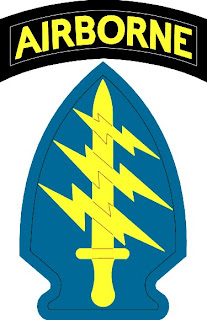Do You Love Me?
Those that I fight I do not hate,
Those that I guard I do not love
--An Irish Airman Forsees His Death,
W. B. Yeats
Uzi like a metal d*ck in my hand,
Magazine like a big testicle gland
--Uzi Lover, Fur Q.
In every job that must be done
There is an element of fun
You find the fun and snap!
The job's a game
--A Spoonful of Sugar,
Mary Poppins
___________________
The film American Sniper based on Chris Kyle's eponymous book did better than it deserved to based upon some fortunate confluences.
In addition to its propitious opening date (the Martin Luther King holiday weekend), the recent murders by Islamist gunmen at the Paris office of the satirical newspaper Charlie Hebdo added a bump of renewed outrage in the viewing public. Clint Eastwood, the aging film gunman who had softened in his recent cinematic depictions of bad versus good (The Unforgiven, Flags of Our Fathers, Grand Torino) has gotten right back on that black hat /white hat horse with Sniper, and that simplicity is what an angry and confused audience craves.
The pairing of Eastwood and Kyle -- the two outlaws for good -- provides a uniquely American antidote to evil. The pairing is as perfect as Fred Astaire with Ginger Rogers -- a pas de deux where each understands the dance executed from the pull of the trigger to the hit of the target. It is a ballet, and a love song.
However, a conflict sits in the heart of the solution. For every "American" sniper, there is a Syrian, or Iraqi, or an endless array of other nationalities, thus making sniping a zero-sum game. Moreover, the sniping has no forseeable end-point either in time or place, and Kyle can't be everywhere, so what began as a bromidic story of bravado and sacrifice becomes one of ultimate failure.
Moreover, the "Good" Bad Guy archetype in American films (from Zorro to the Outlaw Josey Wales and Dirty Harry Callahan) has been trounced by the level of brute violence demonstrated by the Islamic fighters. In a reversal of Crocodile Dundee's dictate to not bring a knife to a gunfight, now the knife or the scimitar wields more terror than the surgical strike with the grandest destructive materiel.
It seems the late Mr. Kyle was something of a fabulist who claims to have killed 150, and maybe 225 enemy. But even had Mr. Kyle killed twice as much, he did not make the American public safer, for the enemy is like a hydra. Each head cut down generates two more. The murders we commit lead to an animation of the rising generation.
We are like Utah's Kaelin Clay, dropping the ball one yard short of the field goal and calling it a win. The celebration and elation does not make it so.
Kyle apparently took glee in finding his life's profession, having failed at some early life projects. The origin of braggadocio can often be found in failure. The author presents a pure Horatio Alger story, but being a sniper is neither glorious nor especially patriotic, though that seems to be the emotion elicited in the average viewer of the film.
A sniper is a member of a military unit who executes a job, but does not single-handedly win a battle. The military does not bestow medals prodigiously to snipers.
Ranger has known several Army snipers of repute, and they all demonstrate humanity and humility. They do not brag, nor do they express a diminution, disdain or hatred of the enemy (unlike Mr. Kyle.) The qualification for the job is to be calm, steady and reliable.
Perhaps the reason a film like American Sniper does so well is that tries to compensate for decades of lost American wars. Since World War II, America has not enjoyed a win. So we take the small story and pump it up, telling ourselves that at least we have heart. But in his book, Mr. Kyle reports that he would have liked to have killed everyone he saw carrying a Koran (though he did not), and, “I only wish I had killed more,” of which neither statement demonstrates heart.
Among Ranger's sniper associates, after their lethal engagements they spoke with respect for their former enemies. They do not brag nor do they express hatred for the enemies with whom they were formerly lethally-engaged, in fact, they speak with respect for them. Many have formed personal reconciliations with them.
Killing was a job to do, and it was neither fun nor enjoyable. Mr. Kyle's stated enjoyment of killing belies the truth behind winning hearts and minds with a military. His attitude is neither fully human, nor is it necessary for the execution of his job.
Watching the film gives the viewers a false sense of participation in a war we largely ignore. The true believers come as they do to Lourdes, deifying their savior (for few bucks and a couple hours.)
For the faux patriots, "Kyle, save us!" may be 2015's version of "E.T., come home!" And just as unlikely.
--by Jim and Lisa
Labels: American Sniper, Chris Kyle, phony war on terror, PWOT, sniping, war, war on terror












1 Comments:
There were no heroes in Iraq and Chris Kyle was a sociopath. He believed guns were a solution to every problem. He lived and died by the sword. The world is better off without him.
Post a Comment
<< Home